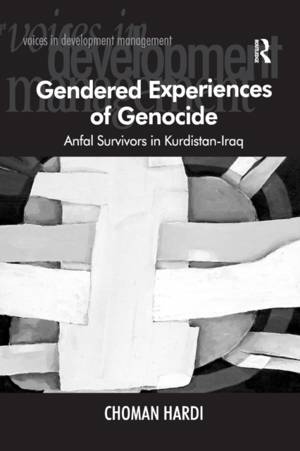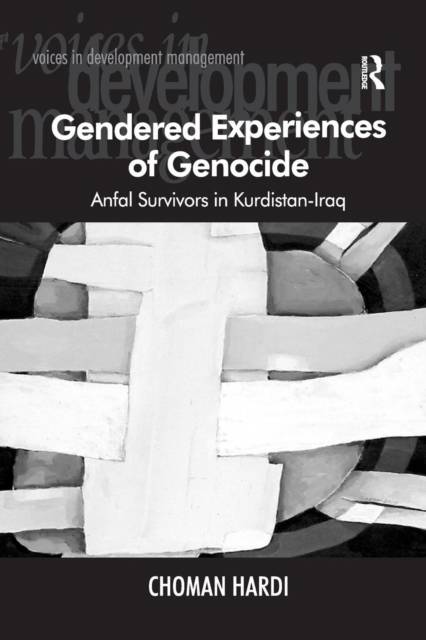
- Afhalen na 1 uur in een winkel met voorraad
- Gratis thuislevering in België vanaf € 30
- Ruim aanbod met 7 miljoen producten
- Afhalen na 1 uur in een winkel met voorraad
- Gratis thuislevering in België vanaf € 30
- Ruim aanbod met 7 miljoen producten
Zoeken
€ 106,95
+ 213 punten
Uitvoering
Omschrijving
Between February and September 1988, the Iraqi government destroyed over 2000 Kurdish villages, killing somewhere between 50,000 and 100,000 civilians and displacing many more. The operation was codenamed Anfal which literally means 'the spoils of war'. For the survivors of this campaign, Anfal did not end in September 1988: the aftermath of this catastrophe is as much a part of the Anfal story as the gas attacks, disappearances and life in the camps. This book examines Kurdish women's experience of violence, destruction, the disappearance of loved ones, and incarceration during the Anfal campaign. It explores the survival strategies of these women in the aftermath of genocide. By bringing together and highlighting women's own testimonies, Choman Hardi reconstructs the Anfal narrative in contrast to the current prevailng one which is highly politicised, simplified, and nationalistic. It also addresses women's silences about sexual abuse and rape in a patriarchal society which holds them responsible for having been a victim of sexual violence.
Specificaties
Betrokkenen
- Auteur(s):
- Uitgeverij:
Inhoud
- Aantal bladzijden:
- 232
- Taal:
- Engels
- Reeks:
Eigenschappen
- Productcode (EAN):
- 9781138260290
- Verschijningsdatum:
- 11/11/2016
- Uitvoering:
- Paperback
- Formaat:
- Trade paperback (VS)
- Afmetingen:
- 156 mm x 234 mm
- Gewicht:
- 331 g

Alleen bij Standaard Boekhandel
+ 213 punten op je klantenkaart van Standaard Boekhandel
Beoordelingen
We publiceren alleen reviews die voldoen aan de voorwaarden voor reviews. Bekijk onze voorwaarden voor reviews.











